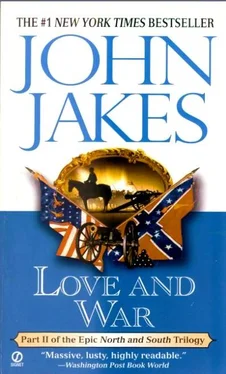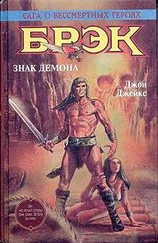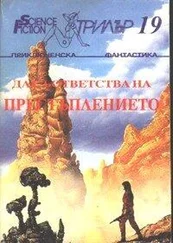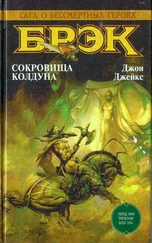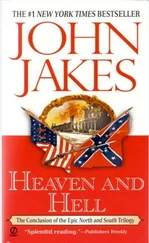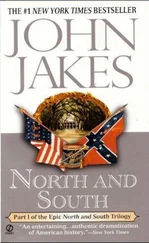Джон Джейкс - Love and War
Здесь есть возможность читать онлайн «Джон Джейкс - Love and War» весь текст электронной книги совершенно бесплатно (целиком полную версию без сокращений). В некоторых случаях можно слушать аудио, скачать через торрент в формате fb2 и присутствует краткое содержание. Жанр: Исторические приключения, на английском языке. Описание произведения, (предисловие) а так же отзывы посетителей доступны на портале библиотеки ЛибКат.
- Название:Love and War
- Автор:
- Жанр:
- Год:неизвестен
- ISBN:нет данных
- Рейтинг книги:4 / 5. Голосов: 1
-
Избранное:Добавить в избранное
- Отзывы:
-
Ваша оценка:
- 80
- 1
- 2
- 3
- 4
- 5
Love and War: краткое содержание, описание и аннотация
Предлагаем к чтению аннотацию, описание, краткое содержание или предисловие (зависит от того, что написал сам автор книги «Love and War»). Если вы не нашли необходимую информацию о книге — напишите в комментариях, мы постараемся отыскать её.
Love and War — читать онлайн бесплатно полную книгу (весь текст) целиком
Ниже представлен текст книги, разбитый по страницам. Система сохранения места последней прочитанной страницы, позволяет с удобством читать онлайн бесплатно книгу «Love and War», без необходимости каждый раз заново искать на чём Вы остановились. Поставьте закладку, и сможете в любой момент перейти на страницу, на которой закончили чтение.
Интервал:
Закладка:
Neither governor is here accused of sinister plotting. But a man such as Powell, whose remedy for grievance is bullets, is not that far removed from those like Brown and Vance who continually screamed "dictator" and "despot" at Jefferson Davis.
The second ingredient I needed, also mentioned in the Afterword of North and South , was accuracy.
I don't mean infallibility. In a novel this long and complex, it's impossible to be perfect. But it's absolutely necessary to try. I had a sharp lesson on the point during the early stages of work.
Always a fan of Errol Flynn films, I taped and watched one I hadn't seen for years — Santa Fe Trail . It was released by Warner Brothers in 1940 and is still shown frequently on television. It includes the following men as members of the West Point class of 1854. Jeb Stuart, played by Flynn — that, at least, is correct. There is also Longstreet (class of '42), Pickett ('46), Hood ('53), and Stuart's best pal, George Custer ('61). Young Custer is portrayed by young Ronald Reagan.
During the course of the muddled plot — Flynn devotees consider it one of his lesser efforts for Warner's — we meet a silver-haired actor cast as a familiar character type, the Distinguished Businessman. This Distinguished Businessman possesses a Kansas railroad and a daughter whom Jeb marries. In other words, Jeb doesn't come anywhere close to doing what he really did: wed the daughter of Philip St. George Cooke, the career officer who became his sworn foe in the war and the man he attempted to humiliate as part of his ride around McClellan.
Stuart's endlessly grinning sidekick Custer is forced to settle for an insipid blond, the daughter of Jeff Davis. Davis is made up to look like a bargain-basement Lincoln; the girl resembles a chorine from a Betty Grable musical.
Even worse, it's a curiously spineless film when dealing with the slave question. The cavalrymen at one point fight John Brown in "bloody" — sic — Kansas, but Stuart and Custer mutually declare that "others" must "decide" about slavery. They just "carry out orders" and presumably have no opinions on national issues.
Well, not many, anyway. At one point Custer makes a mild statement on behalf of the abolitionist position. He is at once reprimanded. The script then requires Reagan to grin sheepishly and say, "Sorry."
The film is relevant to the matter of accuracy in this way. Since people, not machines, write novels — and screenplays — the re-creation of any chunk of the past will more than likely result in at least a few mistakes. (I made a dandy in connection with coinage in the first book of this trilogy.) But unintentional errors are not quite the same as gross revisions of the record, perpetrated for heaven knows what reason, and obviously tolerated in many novels, but most notoriously in motion pictures. The technique is what I call "History a la Polo Lounge." I hope readers have found none of it here.
In fairness, it must be said that film producers are not the only individuals guilty of doctoring the past. As a people, we all tend to be mythmakers as the generations pass. Thus our icon version of Lincoln is forever the all-knowing, eternally calm idealist and humanitarian, rather than the doubt-ridden, depressive, and widely hated political pragmatist who was lifted to greatness by necessity and his own conscience. Our Lee is the eternally benign hero seated on Traveller, not a soldier whose ability was suspect, whose decisions were often questioned, and who received the scorn of many fellow Confederates through nicknames such as "Granny" and "Retreating" Lee.
We mythologize not only individuals but also the war itself. Perhaps the Polo Lounge effect, the remove of most serious historians from the personal elements — there are splendid exceptions, such as the late Bell I. Wiley — and our own quite natural human tendency to prefer the glamorous to the grimy, have combined to put a patina on the war. To render it romantic. It was — for about ninety days. After that came horror. And the horror grew.
Yet the dewy visions persist.
Although Gone With the Wind is a film deserving of all the admiration and honor it has received, the reason is not its faithful re-creation of history; the picture is a romance. Sanitized battles occur — briefly — in montages, or on title cards. Atlanta burning is a grand action spectacle, but says little about personal tragedy. Slavery is never an issue; the house blacks at Tara are happy, cute, and apparently content. And despite a few hospital scenes, genuine suffering is never depicted, except in the famous depot shot with the camera crane rising and rising to reveal, gradually and with devastating power, more and more and more maimed men.
It may be unfair to judge a classic by standards other than those of its own time. On the other hand, most of the social views of Charles Dickens hold up today. Those of GWTW don't.
In 1939, white Americans considered it all right for Butterfly McQueen and Hattie McDaniel to be cute though enslaved, just as it was all right for Mantan Moreland to play a stereotyped succession of railway porters and other servitors in Charlie Chan pictures; the black actor was usually required to demonstrate Comical Negro Cowardice by trembling, exhibiting saucer eyes, and speaking lines such as the famous "Feet, don't fail me now!"
My problems with the magisterial GWTW , which I love with shameless emotion despite its clear negative aspects, are two. First, it is the major film representation of the war, thus an implicit validation of its own dubious morality. Second, only one recent picture that I can recall — David L. Wolper's landmark production of Roots — comes close to matching it for popular stature and impact. Yet that enduring acclaim may be valuable as a continuing reminder of the difference between the standards of the thirties and a newer America; the difference between the myth and the truth.
Occasionally there are works of fiction — Stephen Crane's Red Badge of Courage , the landmark Andersonville , the wonderful The Killer Angels — that cut to the bone and expose the truth about the war. The truth that the legends of perpetual chivalry and decency at all levels, beginning to end, are false. Along with correct detail, I sought this larger sense of truth throughout the book. Whether I found it is not a judgment that is mine to make.
On the trail of accuracy, I rewalked every one of the eastern battle sites and historical parks. I had visited most before, but not all. I saw little Brandy Station on a beautiful spring day in 1982. That same week, I spent the whole of a foggy wet Saturday at Antietam. There were few present beyond those the markers and monuments conjured. It was a dark and moving day.
In passages dealing with battles and campaigns, readers may have noticed that there is little use of the names and numbers of military units. An army table of organization is always complex, but that's doubly true in the Civil War, since the armies on both sides were restructured several times to suit the ideas of the particular general in command. I believe the alpha-numerical hash of armies and corps, divisions and regiments is chiefly of interest to the specialist. When used, as it is so often, as the backbone of an account of a battle, it leaves me confused and irritated. That is why I avoided it. Nevertheless, I endeavored to put units important to the story in the right place at the right time.
A couple of other points must be mentioned to keep the record straight.
Wade Hampton did have "Iron Scouts," but the ones whose exploits are described are fictitious.
Remarks of senators taking part in the 1863 debate over H.R. 611 — the West Point appropriation bill — are excerpted from the Congressional Globe for January 15, 1863. Although my version of the content and general flow of the floor fight is accurate, the actual debate was far more windy. In transcript it runs ten pages, three columns per page, in miniature type. I have also chosen widely separated sentences from long statements by Ben Wade and other speakers and arranged these into shorter pieces of oratory. Where I've taken liberties, I have abridged the factual record, not invented a new one.
Читать дальшеИнтервал:
Закладка:
Похожие книги на «Love and War»
Представляем Вашему вниманию похожие книги на «Love and War» списком для выбора. Мы отобрали схожую по названию и смыслу литературу в надежде предоставить читателям больше вариантов отыскать новые, интересные, ещё непрочитанные произведения.
Обсуждение, отзывы о книге «Love and War» и просто собственные мнения читателей. Оставьте ваши комментарии, напишите, что Вы думаете о произведении, его смысле или главных героях. Укажите что конкретно понравилось, а что нет, и почему Вы так считаете.
